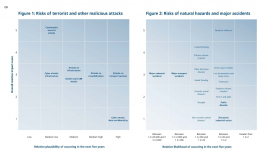shakahislop
Well-known member
but nothing works like that. everything gets nicked. its not just the internet its just how culture has worked for i don't know a hundred years. it's a recurring tragedy. probably everyone should know that by now.
I see where you're coming from, but nobody is born a hipster. It's a subculture-slash-aesthetic, isn't it? Like in decades past you had mods and soul boys and whatever (and in fact just earlier iterations of hipsters). So to include people who identify as non-binary sounds quite close to a Biscuity (edit: and Gus-ish) sort of position that being gender-nonconforming in general is just a pose, or a look, or something people do to be cool and part of the in-crowd.what came after the hipsters? that's something that's been going through my head recently. it's the social justice warriors and that unnamed world i think. the nonbinary and so on. i don't have the name for it. i think that's the successor anyway. so much more hard edged and serious than hipsters. much more commited. more like the punks and the hippies; there's a programme
the potent moments are usually before these things have proper names. i'm sure its been said on here before. wot u call it and so on.
fuck have i accidentally summoned these debates out of their quarantined threads. delete it all. i don't want to talk about that. you're right btw tea it does sound like thatI see where you're coming from, but nobody is born a hipster. It's a subculture-slash-aesthetic, isn't it? Like in decades past you had mods and soul boys and whatever (and in fact just earlier iterations of hipsters). So to include people who identify as non-binary sounds quite close to a Biscuity sort of position that being gender-nonconforming in general is just a pose, or a look, or something people do to be cool and part of the in-crowd.
Yeah, sure, I getcha.forgetting that offhand comment about nonbinary people etc. there is something that's emerged no, that fits into the us alt subculture continuum, that succeeds hipsterdom (which is dead and buried).
but nothing works like that. everything gets nicked. its not just the internet its just how culture has worked for i don't know a hundred years. it's a recurring tragedy. probably everyone should know that by now.
one thing i've noticed about the nyc club world is that the good ones don't use the language of subgenres. they go out of their way to find any other way to describe what kind of music is going to be on, all these flowery paragraphs. but beyond 'house' or 'techno' they won't say anything specific. it means i don't have the vocabulary either coz there's no-one to learn it. seems good.The categorisation impulse seems almost pathological. I don't sense much joy in it. Just this ravenous appetite for corralling everything in sight.
I'm sure those memes about specific types of people do a number on the people who make them as much as anyone else.
M. John Harrison on disaster fiction:
"As a literary artefact, it’s great. But I think the disaster that it represents, the viewpoint on the disaster, is old-fashioned. It’s out of date. It’s a typical 1950s disaster story, in which the disaster is limited. The fiction caps it at both ends. The characters are left with the consequences, and the consequences can be solved by doing the kinds of things that human beings do – make a community, make an allotment, begin the long road back to the world as it was before. My feeling is that this kind of fictional disaster was over once The Day of the Triffids had been written."
"I think they’re reassuring. Brian Aldiss called them ‘cosy catastrophes’. They limit the way we can think about our own disaster. Because what’s happening to us now is clearly not a limited disaster. We live in a state where the disaster doesn’t have a clear beginning and it certainly doesn’t have a clear end."
"You have to be very careful about the words you use here. Managed populations must never know a disaster is taking place around them. Instead we’re offered the idea of the ‘temporary glitch’. There’s a bit of a problem with microplastics, there’s a bit of a problem with the temperature; but, you know, it’s just a glitch, it’s not the end of the world. The disaster used to be the end of the world. It used to be conceivable as the end of the world. What we need now is writers who confront the fact that probably everything is going to be a disaster from now on for quite some time, if not forever."
"The problem with all escapist fiction, which includes all standardised generic fiction, is that, actually, there is always part of the audience which secretly enjoys the imagery."
"And as a result, you have to be careful what you offer them. That said, I think that when the disaster story hit its peak in the fiction of the 1950s and early 1960s, most of those writers were still trying to do right by the idea. They were trying to make warnings about the near future in the light of a visible present moment."
"We need new forms and structures, points of view. You could say a new ideology of disaster, one which suits the disaster we’ve actually got."



View attachment 16551
National Risk Register 2023
The National Risk Register outlines the most serious risks facing the United Kingdomwww.gov.uk





